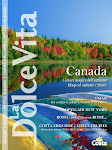As we enter the traditional peak summer season and following our last PT article on the Swine Flu critical alert pandemic on the 9th May 2009, from what we understand its clear that the highly reported Flu is rapidly spreading at an alarmingly fast rate and this reality is poised to clash with summer tourism in the popular holiday haunts of the masses.Yet, it seems that the mass media is bored with the topic, as Swine Flu gains pace before our eyes and much of the population across our planet remains apathetic to the risks involved.
The greatest fear is whether Swine Flu migrates or evolves into a more resistant and potentially deadly strain. Its a perfectly plausible scenario and we maybe sleep walking into a harsh reality this summer.
This PT article is designed to give you the updated facts and advice what to do to protect yourself when travelling.
WORST HIT DESTINATIONS
Britain has the third highest number of confirmed cases of the virus in the world, just behind Mexico (where the outbreak began) and the United States. Laboratory tests showed that yesterday there were 9,718 confirmed cases in the UK. This was just behind Mexico, with 10,262 cases. The U.S. is in pole position with 33,902 confirmed cases and the highest number of deaths recorded being in New York.
SWINE FLU ANALYSIS
Most Swine Flu hospitalisations are in fact among people with underlying medical conditions as follows...
➢ 32% asthma or chronic lung disease
The greatest fear is whether Swine Flu migrates or evolves into a more resistant and potentially deadly strain. Its a perfectly plausible scenario and we maybe sleep walking into a harsh reality this summer.
This PT article is designed to give you the updated facts and advice what to do to protect yourself when travelling.
WORST HIT DESTINATIONS
Britain has the third highest number of confirmed cases of the virus in the world, just behind Mexico (where the outbreak began) and the United States. Laboratory tests showed that yesterday there were 9,718 confirmed cases in the UK. This was just behind Mexico, with 10,262 cases. The U.S. is in pole position with 33,902 confirmed cases and the highest number of deaths recorded being in New York.
SWINE FLU ANALYSIS
Most Swine Flu hospitalisations are in fact among people with underlying medical conditions as follows...
➢ 32% asthma or chronic lung disease
➢ 16% diabetes
➢ 10% current smokers
➢ 7% pregnant
An analysis of 99 of the 127 U.S. residents who have already died of Swine Flu shows that 87 of them suffered underlying conditions:
➢ 11% had asthma
➢ 24% had other lung diseases
➢ 13% had diabetes.
➢ 11% were morbidly obese
➢ 34% were obese
TRAVELLING WITH FACE MASKS
According to the CDC, it's not clear how effective face masks actually are at preventing the transmission of the H1N1 or seasonal influenza viruses. The same is true for respirators worn snugly over the face as filters. The CDC doesn't recommend face masks or respirators in most settings except if you're at high risk of severe illness from influenza and are caring for someone who has a flu-like illness, or for high-risk people who can't avoid being in a crowded setting where the swine flu virus is likely to be present.
An analysis of 99 of the 127 U.S. residents who have already died of Swine Flu shows that 87 of them suffered underlying conditions:
➢ 11% had asthma
➢ 24% had other lung diseases
➢ 13% had diabetes.
➢ 11% were morbidly obese
➢ 34% were obese
TRAVELLING WITH FACE MASKS
According to the CDC, it's not clear how effective face masks actually are at preventing the transmission of the H1N1 or seasonal influenza viruses. The same is true for respirators worn snugly over the face as filters. The CDC doesn't recommend face masks or respirators in most settings except if you're at high risk of severe illness from influenza and are caring for someone who has a flu-like illness, or for high-risk people who can't avoid being in a crowded setting where the swine flu virus is likely to be present.
TOP PT TRAVEL TIPS
1. Cover nose & mouth if you cough or sneeze.
2. Use tissues and throw away after use. 3. Wash your hands often.
4. Use soap and water when washing.
5. Use an alcohol-based hand cleaner.
6. Avoid touching eyes / nose / mouth.
7. Avoid close contact with sick people.
Note that when someone sick with Flu talks, sneezes, spits or coughs, infected flu droplets can travel at least 1 meter (about 3.3. feet), so keep out of theor personal zone.
BEFORE YOU TRAVEL TO AN AFFECTED AREA
1. Educate yourself and others travelling with you.
2. Consult your usual healthcare provider for travel medical advice.
3. Check the Foreign Office travel advice for your destination country before travelling or PT travel advice.
4. Assemble your health insurance plan.
DURING TRAVEL TO AN AFFECTED AREA
1. Avoid all direct contact with pigs and visiting the farms 2. Practice careful and frequent hand washing.
3. Seek immediate medical attention if symptoms occur.
HOTELS & CRUISE SHIPS
1. Sanitise anything you may touch in your room ie door handles, remote control and light switches.
2. Make a habit of washing your hands.
3. Never take ice from the ice bucket.
4. Remove the top bed cover.
5. Don't drink from in-room glasses
6. Don't touch bannisters.
7. Use disposable tissues to touch things.
8. Go for a non smoking room.
AFTER YOU RETURN
1. Monitor your health for 10 days.
2. If you become ill with high fever consult a doctor immediately.
WHAT CAN YOU DO TO BE PROTECTED FROM GETTING SICK? There is no vaccine available just yet (in progress) to protect against Swine Flu. You can take these everyday steps to protect your health.
Prevention is better than cure so follow the above-mentioned advice.
IT IS SAFE TO EAT PORK?
One cannot get influenza from properly handled and cooked pork products, so its considered safe to eat.
There is no 100% way to avoid catching Swine Flu unless you live in a bubble, but with common sanitation sense and a few precautions the odds are by far in your favour to avoid this latest virus menace.
Have a healthy summer!
1. Cover nose & mouth if you cough or sneeze.
2. Use tissues and throw away after use. 3. Wash your hands often.
4. Use soap and water when washing.
5. Use an alcohol-based hand cleaner.
6. Avoid touching eyes / nose / mouth.
7. Avoid close contact with sick people.
Note that when someone sick with Flu talks, sneezes, spits or coughs, infected flu droplets can travel at least 1 meter (about 3.3. feet), so keep out of theor personal zone.
BEFORE YOU TRAVEL TO AN AFFECTED AREA
1. Educate yourself and others travelling with you.
2. Consult your usual healthcare provider for travel medical advice.
3. Check the Foreign Office travel advice for your destination country before travelling or PT travel advice.
4. Assemble your health insurance plan.
DURING TRAVEL TO AN AFFECTED AREA
1. Avoid all direct contact with pigs and visiting the farms 2. Practice careful and frequent hand washing.
3. Seek immediate medical attention if symptoms occur.
HOTELS & CRUISE SHIPS
1. Sanitise anything you may touch in your room ie door handles, remote control and light switches.
2. Make a habit of washing your hands.
3. Never take ice from the ice bucket.
4. Remove the top bed cover.
5. Don't drink from in-room glasses
6. Don't touch bannisters.
7. Use disposable tissues to touch things.
8. Go for a non smoking room.
AFTER YOU RETURN
1. Monitor your health for 10 days.
2. If you become ill with high fever consult a doctor immediately.
WHAT CAN YOU DO TO BE PROTECTED FROM GETTING SICK? There is no vaccine available just yet (in progress) to protect against Swine Flu. You can take these everyday steps to protect your health.
Prevention is better than cure so follow the above-mentioned advice.
IT IS SAFE TO EAT PORK?
One cannot get influenza from properly handled and cooked pork products, so its considered safe to eat.
There is no 100% way to avoid catching Swine Flu unless you live in a bubble, but with common sanitation sense and a few precautions the odds are by far in your favour to avoid this latest virus menace.
Have a healthy summer!
Sharon Mckinley














No comments:
Post a Comment